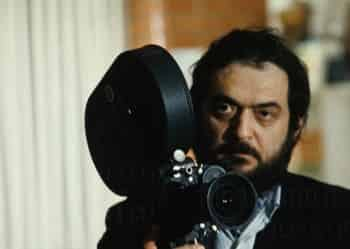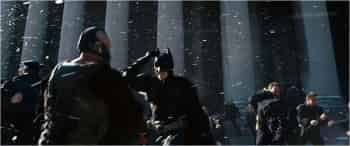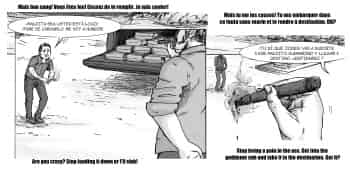Bonus
-
Ideas floating in the air– Part I
Today, it’s hard to create something that’s fundamentally original. Stanley Kubrick is said to have told Jack Nicholson, “You know, in a way every scene has already been done in film. Our job is simply to do them a little better” (Kubrick, Michel Ciment, Paris, Calmann-Lévy, 1999, p. 297). Now that we all have easy access to the accumulated knowledge of centuries, it’s hard to pretend that knowledge doesn’t exist.
In an interview, Sam Mendes said Nolan’s Dark Knight was a revelation in his approach to the latest James Bond (“The Dark Knight Skyfall: New Bond Director Drew Inspiration from Nolan’s Batman,” Russ Burlingame, October 19, 2012). But at the same time, Darren, in his analysis, shows that Nolan’s Batman owes a great debt to the Bond franchise: “What Bond Learned from Batman: The Dark Knight & Skyfall […]” (Darren, them0vieblog.com, October 26, 2012). He adds that these dynamics of mutual influence should not be avoided, but we must learn to draw the right lessons from them.
-
Comments from fans
In an interview by e-zine The Beat, Bill Jemas, founder of 360eps and former member of the Marvel team, said: “You can be more creative for less money and less time with better feedback with comics than in any medium I’ve ever been around” (“Interview: Former Marvel COO Bill Jemas Tells Us How to Wake the F#ck Up,” comicsbeat.com, September 13, 2012). This is in line with Marc Alan Fishman saying that he managed the risks of his creative projects by listening to the comments of his true fans (“Everything We Do, We Do It for You,” Marc Alan Fishman, comicmix.com, October 27, 2012).
Without denying the value of fan comments, it’s important to know what changes are being made to improve the product and which ones are done just to make readers happy. Jesse Alexander called the third season of the TV series Alias definitely the series’ worst: “[…] and we’d change up things a little based on viewers’ reactions to certain things. But because we didn’t have any chance to deal with that the year [season four], we’ve been operating in a vacuum where we’ve really been free to craft a story without any outside influence. I think that’s probably helped us stay focused on our goal for the end of the year” (“Revelations,” Alias–The Official Magazine, Vol. 1, No. 10, May-June 2005, p.64-65).
The point isn’t to reject readers’ comments; quite the opposite. But if we write, it’s because we have something to say. As Mark Waid said, you have to please yourself and it all depends more or less on you if down the line your work is read by a lot of other people (Interview #22 – Mark Waid, www.comicsreporter.com, January 10, 2013).
-
Managing your concepts
In a blog entry on the film Promised Land, François Cardinal made the following comment: “I simply received confirmation for what I have long believed: the environment rarely makes for good writing, simply because the author’s beliefs take centre stage, at the expense of the story. ” [translation]. (« Terre promise : quand la fiction se met au service de l’écologie… », lapresse.ca, Monday, January 7, 2013).
Burlingame, who was covering a number of writing rules, said: “Give your characters opinions. Passive/malleable might seem likable to you as you write, but it’s poison to the audience.” (“Pixar and Joss Whedon’s Rules For Writers,” Russ Burlingame, comicbook.com, December 8, 2012).
We completely agree with both these statements. In fact, we think that when writers give their opinion through their characters, it takes away from the fiction and turns the story into an essay, which is a completely different literary form. It is also a type of fraud toward the readers, to whom the writer promises entertainment, but then slowly attempts to brainwash them with faddish personal beliefs.
We also believe that manipulating ideas must be done very delicately in a work of fiction. In his analysis of the movie, The Dark Knight Rises, Sebala emphasizes that “The Dark Knight Rises suffers so mightily because it substitutes twists for character arcs, convenience for hard choices and flashbacks for discernible themes” (Sound and Fury: ‘The Dark Knight Rises’ Against Theme and Story, Christopher Sebela, comicsalliance.com, July 27, 2012). In this way, a writer’s good ideas can suffocate the story, at the expense of the characters and of the story.
-
But what were they saying? (The grace of God)
-
References in the story “The Guide”







